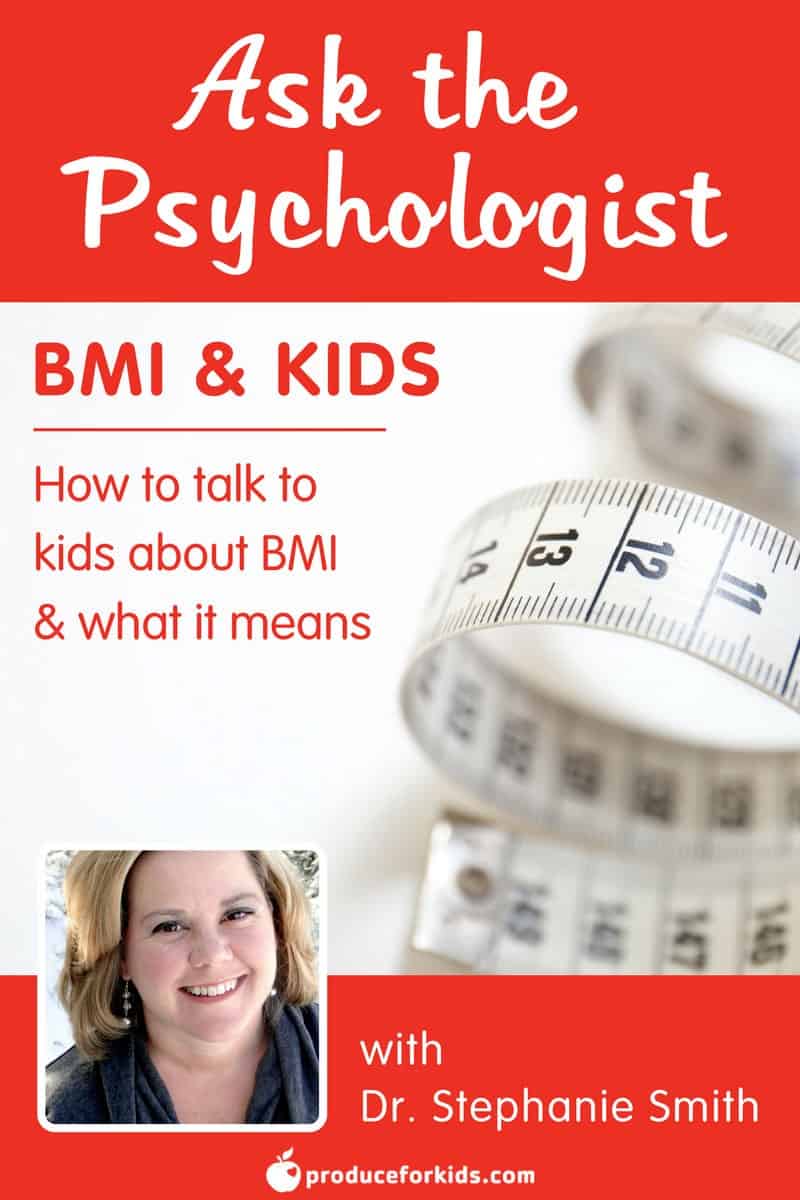Ask the Psychologist: BMI and Kids

Many schools across the U.S. check-in yearly with kids’ BMI (Body Mass Index). What if your child has a bigger build and is a very athletic/healthy eater but falls into the BMI alert category (of being overweight or obese) simply based on weight/height ratio. Do you have any recommendations on talking to kids about this touchy subject?
Weight and body image are incredibly complex, personal and challenging topics for many adults. For kids, teens and young adults, the topics are certainly no easier. While I can appreciate your daughter’s school’s attempt to monitor students’ overall health and wellness (much like they might do in vision and hearing screenings), I can completely understand your daughter – and your! – heartache and confusion in receiving the results.
Here are a couple ideas for how to manage this tender and multi-faceted topic:
Manage your own reactions. It’s easy to feel outraged when something like this happens and our children are hurt. But showing your son or daughter those feelings doesn’t do much to help the situation. Instead, try acknowledging what he or she is feeling. Briefly let them know your thoughts (for example, we aren’t a number on the scale, or on the BMI chart; but are made up of our daily decisions about activity and food, family history, developmental stage and genetics), and then move on. It can be easy as a mom to get caught up in a situation like this, talk about it all afternoon and get yourself (and thus your son or daughter!) really worked up. Let them know you don’t put much importance on the test results, by showing them how you can move on to better and healthier things.
Focus on how awesome her body is for what it does, not what it looks like or what size it is. As I said above, we aren’t just numbers on the BMI chart. We are soccer players, and wrestlers, hikers, skiers, skateboarders, trumpet players, chess champions and readers. Let your son or daughter see you put size and weight into its proper, small category. And let them watch you enjoy using your body in all the ways you enjoy. Zumba anyone?
Consider talking to her school. This is a tough one. I’m not a fan of stirring up trouble when it’s not necessary, but I think there is a way to let the school know about what happened in your home the day you all received the results. A quick call to the principal, school counselor, or teacher could be short and sweet – and may even produce some future changes to how test results are handled. You might try saying something like:
“I really appreciate all you do to educate and care for my daughter. I just wanted to check in with you about the BMI results you sent home last week. My daughter felt embarrassed/ashamed/sad/confused when she got home. I wonder if you had any tips on how to talk to the kids BMI in general, and her results in particular? And is there a way to request that any future results be sent to me directly?”
DISCLAIMER: Please note that the information in this article is intended for informational purposes only. It should not be used as a substitute for psychological or medical care. If you are experiencing a mental health emergency, call 9-1-1.











